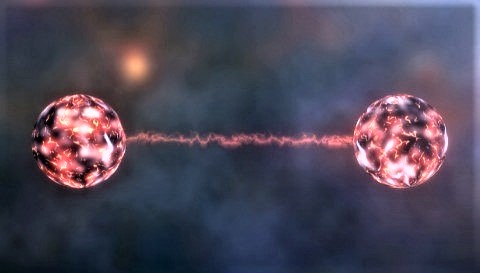Can God Create Another God?

When someone challenges my religious or theological beliefs, I am prepared to engage in a discussion as long as the other party is respectful, honest, and open-minded. Unfortunately, many people who approach me with challenges don’t want an answer. Their dogmatic attitude echoes the slogan, “My mind is made up, so don’t confuse me with facts.”
Nevertheless, our sages (Ethics of Our Fathers 2:14) teach, “Know what to answer” when someone challenges your faith. This approach strengthens our understanding and commitment to the Torah and Judaism.
So, when I was asked why Jews don’t believe that God has a physical form, I was compelled to provide a thoughtful response.
Judaism stood out in strong contrast to ancient pagan religions that professed that God has a physical form. Myths like Hercules (son of Zeus and the mortal woman Alcmene) have no place in a faith that promotes pure monotheism. Many scholars agree that these pagan myths influenced the early church to portray Jesus as God in a body, in order to attract the gentile masses.
Some Christians argue that God can do anything. I counter their argument by asking if God can create another God or destroy Himself. They admit that these are philosophical paradoxes. However, Judaism delves deeper into this question. It is a fundamental belief in Judaism that God transcends the limitations of time and space. This concept is proclaimed clearly in the verse, “I am the first, and I am the last, and besides Me, there is no other God” (Isaiah 44:6).
Time and space are finite creations, and only finite creations can be described as having a beginning or end. Since God’s essence transcends these limitations, the idea that God was created (a beginning) or destroyed (an end) is contradictory. Therefore, to claim that God has a physical form or that He has parts (like the Trinity) also contradicts the infinite and transcendent nature of God.
The Torah anticipates that these concepts might be difficult to grasp, so it provides an explicit warning that forbids believing God has any form. The Torah proclaims:
Watch yourselves very carefully. Since you saw no form on the day that God spoke to you at Sinai… so that you do not become corrupt and make for yourselves an idol, an image of any shape, whether formed like a man or a woman (Deuteronomy 4:15-16).
Despite this clear warning, Christian missionaries grasp at passages in an attempt to rationalize and prove their beliefs. One desperate “proof-text” is taken from the book of Jeremiah. While describing the future arrival of the messiah, we are told that the Jewish people will refer to him as “God is our Righteousness” (Jeremiah 23:6).
Christians argue that this name proves that the human messiah is God. However, as if anticipating the missionary argument, Jeremiah explains that this expression indicates that God will “cause righteousness to sprout forth from David, and he will administer justice and righteousness” (Jeremiah 33:15). The messiah is not God; however, he exemplifies the righteous values God wants us to emulate.
Similarly, the holy city of Jerusalem also stood out as a model of God’s righteousness. Therefore, the prophet uses the same terminology he used to describe the messiah and describes the city of Jerusalem as “God is our righteousness” (Jeremiah 33:16).
In the same way, the city of Jerusalem is not God; neither is the messiah. They do, however, share the common purpose of proclaiming that God is righteous.
Throughout the bible, the names of people, objects, and places incorporate God’s name to indicate their relationship with God. This does not make them God.
This is evident in this week’s Torah portion, Vayeitzei (Genesis 28:10–32:3), which describes the birth and naming of Jacob’s children, the founders of the tribes of Israel. After the naming of each child, the Torah explains the reason for his name. This includes names that contain a reference to God.
For example, the name Judah [יהודה–Yehudah], given to Jacob’s fourth son, means “to thank God” (Genesis 29:35). The Hebrew letters of Yehudah’s name contain letters that refer to the Name of God and the word for “thanks.” Once again, a name in Hebrew describes a relationship to God, but not that the individual is God.
The Jewish bible is replete with other examples of human beings whose names contain the name of God. For instance, Isaiah [ישעיהו–Yeshayahu] means “God is my Salvation,” Daniel [דניאל] means “God is my Judge,” and Hezekiah [חזקיהו–Chizqiyahu] means “God is my strength.”
No one would suggest that these biblical figures are God. Instead, their names communicate the recognition of how God played a role in their lives and their mission to proclaim God in the world.
As descendants of the great biblical figures, we share their mission to proclaim the righteousness of God to the world. We accomplish this by giving thanks to God and dedicating our lives to the moral, ethical, and spiritual teachings of the Torah.
Shabbat Shalom,
Rabbi Bentzion Kravitz
© 2022 Jews for Judaism
→ Get my new book - Know What to Answer - When Someone Challenges Your Faith. Available on Amazon at: https://a.co/d/crv9E0L
 Can God Create Another God?
Can God Create Another God?